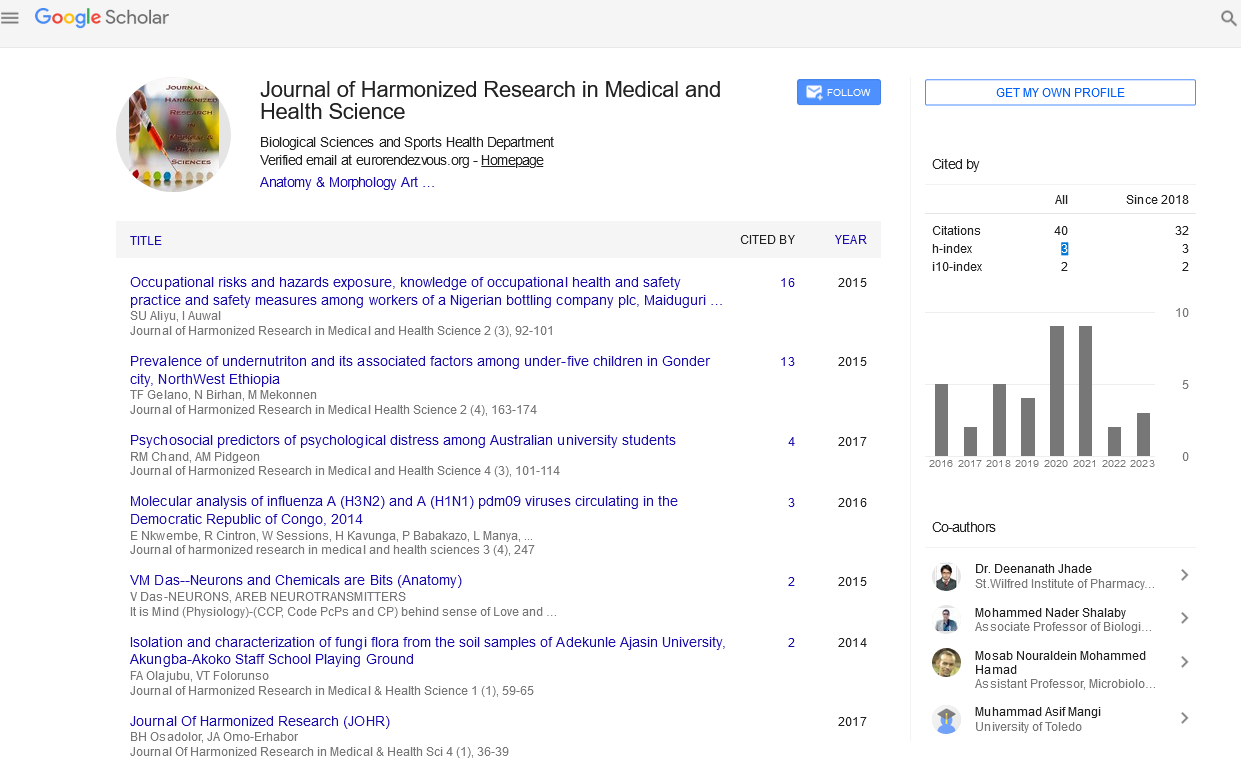Commentary - (2022) Volume 9, Issue 3
PHARMACOLOGY: MODELING AND SIMULATION IN DRUG DEVELOPMENT
Sharon Arora*Received: Aug 05, 2022, Manuscript No. JHRMHS-22-77119; Editor assigned: Aug 08, 2022, Pre QC No. JHRMHS-22-77119 (PQ); Reviewed: Aug 23, 2022, QC No. JHRMHS-22-77119; Revised: Aug 30, 2022, Manuscript No. JHRMHS-22-77119 (R); Published: Sep 07, 2022, DOI: 10.30876/2454-5384.22.9.134
Description
Pharmacology is a subfield of medicine, biology, and pharmaceutical sciences that studies how drugs or medications work. A drug is any synthetic, endogenous, or natural molecule that affects a cell, tissue, organ, or organism in a biochemical or physiological way. More specifically, it is the study of how interactions between a living thing and chemicals impact whether biochemical activity is normal or pathological. Pharmaceuticals are chemicals that have therapeutic qualities. The field includes molecular and cellular mechanisms; organ/systems mechanisms; signal transduction/cellular communication; molecular diagnostics; interactions; chemical biology; therapy; medical applications; and anti-pathogenic properties. It also includes drug composition and properties, functions, sources, synthesis, and drug design. Pharmacodynamics and pharmacokinetics are the two primary subfields of pharmacology.
Pharmacodynamics research examines how a drug affects biological systems, and pharmacokinetics research examines how a drug affects biological systems. Pharmacokinetics deals with the absorption, distribution, metabolism, and excretion of chemicals from biological systems, while pharmacodynamics talks about the interactions of chemicals with biological receptors. Although the terms are commonly misunderstood, pharmacology and pharmacy are not interchangeable. A biomedical discipline called pharmacology is concerned with the investigation, identification, and characterization of chemicals that have biological effects as well as the clarification of how cells and organisms work in connection to these chemicals. As a health services profession, pharmacy, on the other hand, is concerned with using the pharmacology concepts that it has acquired in its clinical settings, whether it be in a dispensing function or a clinical care one.
The main difference between the two in either discipline is how they treat direct patient care, pharmacy practise, and the scientifically rigorous research area that is fuelled by pharmacology. The body’s systems Pharmacology may also concentrate on particular bodily systems. Divisions that focus on bodily systems research how medications affect the body’s various systems. These include immune pharmacology for the immune system and neuropharmacology for the central and peripheral nervous systems. Cardiovascular, renal, and endocrine pharmacology are further subfields. The study of how medications that influence the brain, behaviour, and psyche are used to treat mental illnesses is known as psychopharmacology. With an interest in the behavioural and neurobiological processes of action of psychoactive drugs, it combines methods and approaches from behavioural neuroscience, animal behaviour, and neuropharmacology. Neuro psychopharmacology, a related subject, focuses on how medications affect the neurological system and the mind in tandem.
Conclusion
A branch of metabolomics, the measurement and study of metabolites produced by the body is known as pharmacometabolomics, also known as pharmacometabonomics. It refers to the precise measurement of metabolites in a person’s body fluids with the goal of predicting or assessing how well pharmaceutical substances are metabolised and better comprehending the pharmacokinetic profile of a medicine. Pharmacometabolomics can be used to assess metabolite levels after a medicine has been administered in order to track how the drug affects metabolic pathways. Pharmacomicrobiomics investigates how differences in the microbiome affect the disposition, activity, and toxicity of medications. The relationship between medications and the gut microbiome is the focus of pharmacomicrobiomics. Pharmacogenomics is the use of genomic technology to find new medications and characterise existing ones in relation to the full genome of an organism. Pharmacogenetics, which focuses on individual genes in pharmacology, investigates how genetic diversity results in various pharmacological reactions. Pharmacoepigenetics is the study of the underlying epigenetic marking patterns that affect how each person responds to medicinal therapy differently.










